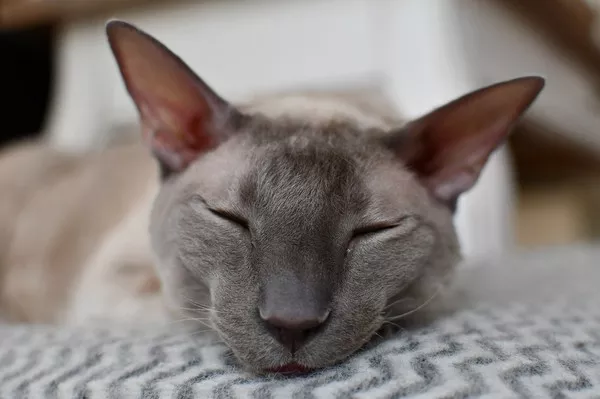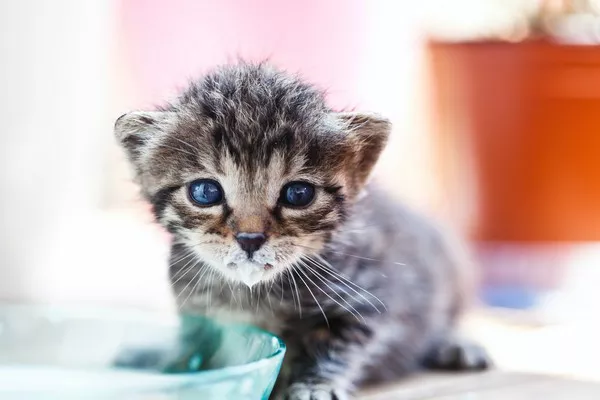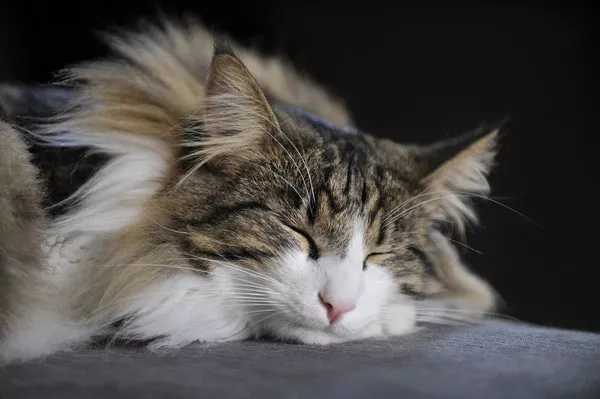Devon Rex cats, known for their slender builds, large ears, and curly coats, are a popular breed among cat enthusiasts. While they are cherished for their playful and loyal nature, potential owners should be aware of specific health issues, including eye problems that are commonly associated with the breed. This article explores the typical eye conditions found in Devon Rex cats, their symptoms, causes, treatments, and preventive measures to maintain the ocular health of these unique pets.
Devon Rex Breed
Originating in England during the late 1950s, the Devon Rex is a result of a natural mutation leading to its distinct appearance and coat. Their sociable demeanor makes them excellent companions, but like all specialized breeds, they carry genetic traits that predispose them to certain health issues, including those affecting their eyes.
Common Eye Problems in Devon Rex Cats
Several eye conditions can affect Devon Rex cats, ranging from mild irritations to serious health issues that can lead to blindness if not properly managed or treated. Understanding these conditions can help owners and breeders ensure that these cats lead long, healthy lives.
1. Congenital Conditions
Hereditary Myopia
Devon Rex cats can inherit myopia, a condition where the eye is longer than normal, causing the light rays to focus in front of the retina. This results in nearsightedness, where distant objects appear blurry while close objects can be seen more clearly.
Symptoms:
Bumping into objects
Difficulty locating or following objects at a distance
Treatment:
There is no cure for myopia, but it is typically not a severe impairment for domestic cats, who can adapt to their visual limitations.
Corneal Dystrophy
This is a group of diseases characterized by the accumulation of abnormal material in the cornea, the transparent front part of the eye. This condition is generally inherited and can vary in severity.
Symptoms:
Cloudy or opaque appearance in the eye
Possible vision obstruction, depending on the severity and location of the deposits
Treatment:
Treatment depends on the severity but can include topical medications to control associated symptoms like inflammation. In severe cases, surgical intervention may be necessary.
2. Acquired Eye Conditions
Conjunctivitis
Conjunctivitis, or pink eye, is common in cats and can affect one or both eyes. It’s often caused by bacterial or viral infections but can also be triggered by allergies.
Symptoms:
Red, swollen eyes
Discharge from the eyes
Frequent blinking or pawing at the eyes
Treatment:
Treatment depends on the cause but may include antibiotic or antiviral eye drops and cleaning of the eye area to remove discharge.
Entropion
Entropion is a condition in which the eyelid rolls inward, causing the eyelashes to rub against the cornea. It can be particularly uncomfortable and may lead to more serious conditions like corneal ulcers.
Symptoms:
Eye irritation or rubbing
Increased tearing
Redness and sensitivity to light
Treatment:
Surgical correction is often required to roll the eyelid back to its normal position to prevent further irritation or damage to the cornea.
Diagnosing Eye Problems in Devon Rex Cats
Early diagnosis is crucial for managing eye problems effectively. Regular veterinary check-ups should include a thorough eye examination. Advanced diagnostic tools such as ophthalmoscopy, slit-lamp biomicroscopy, and tonometry may be used to assess the health of the eyes and diagnose conditions accurately.
Prevention and Management of Eye Conditions
Preventive care is essential in reducing the risk of eye problems in Devon Rex cats. This includes:
Regular Veterinary Visits
Routine check-ups can help catch eye conditions early before they develop into more serious problems.
Proper Nutrition
A balanced diet rich in vitamins and minerals supports overall health and can help prevent diseases that lead to eye problems.
Eye Cleaning
Regular cleaning of the eye area can help prevent infections, especially in breeds like the Devon Rex that may have larger eyes or more prominent facial features.
Avoiding Irritants
Keeping your cat indoors or monitoring outdoor activity can reduce their exposure to irritants like dust and pollen, which can contribute to eye irritation and infections.
The Role of Genetics in Eye Health
Genetics play a significant role in the prevalence of eye conditions in Devon Rex cats. Potential owners should seek breeders who perform genetic screenings and prioritize the health and genetic diversity of their breeding lines. This proactive approach can help reduce the incidence of hereditary diseases in the breed.
Conclusion
Devon Rex cats, like all breeds, have specific health concerns that need to be addressed by potential owners and breeders. Eye problems are relatively common in this breed, and understanding these issues can help in managing their health effectively. Regular veterinary care, preventive measures, and responsible breeding practices are crucial in ensuring that these cats live long and healthy lives. By taking proactive steps and being vigilant about eye health, owners can enjoy the unique companionship of their Devon Rex for many years.


























